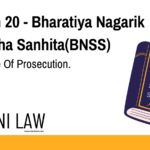CrPC Section 442: Discharge from Custody – Explained
1. State the Code
Section 442 of the Code of Criminal Procedure (CrPC) deals with the discharge of a person from custody.
2. Explanation
This section outlines the circumstances under which a person who has been arrested or detained can be released from custody. It states that a person in custody must be released if:
- The period of detention has expired, or
- The investigating officer is satisfied that the person’s detention is no longer necessary.
Further, the section also clarifies that even if the investigating officer is not satisfied, the person in custody can apply to the Magistrate for release. The Magistrate, after considering the circumstances, can order release if they believe it to be appropriate.
3. Illustration
Imagine a person is arrested for theft. The police detain them for investigation. After 24 hours, the police are satisfied that no further investigation is required. In this scenario, the police can release the person under Section 442 of CrPC.
4. Common Question & Answers
Q: What happens if a person is not released after the maximum period of detention?
A: The person has the right to apply to the Magistrate for release. The Magistrate will then examine the case and decide whether to release the person or not.
Q: Can a person be released on bail under Section 442?
A: No, Section 442 deals with discharge from custody, not bail. Bail is a separate legal process under different sections of the CrPC.
Q: Can the investigating officer refuse to release a person even if the detention period has expired?
A: The investigating officer can refuse only if they have a valid reason, such as the person being a flight risk or posing a danger to the public. In such cases, the officer needs to justify the continued detention to the Magistrate.






